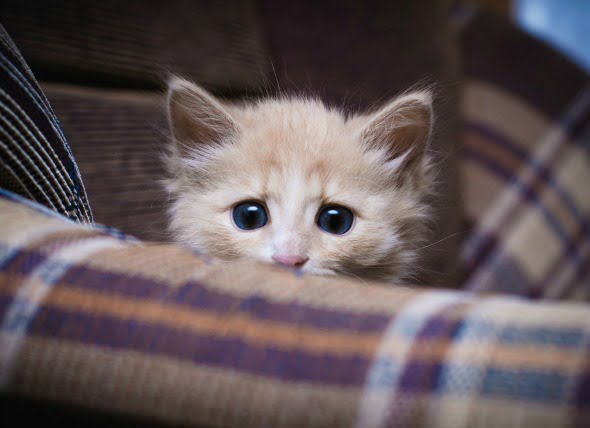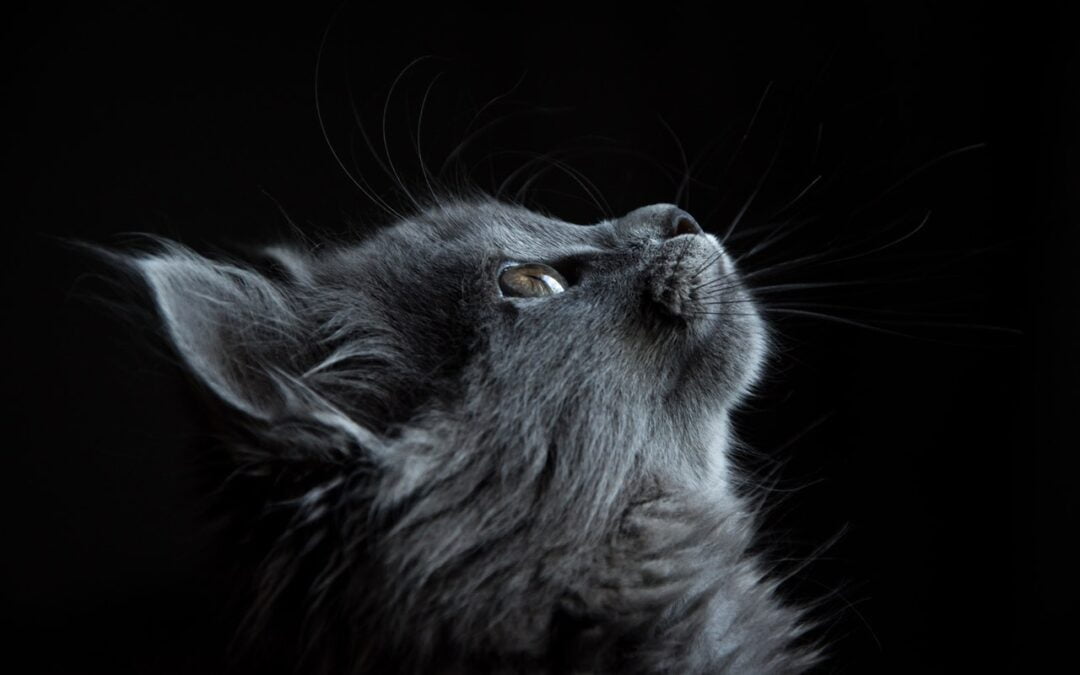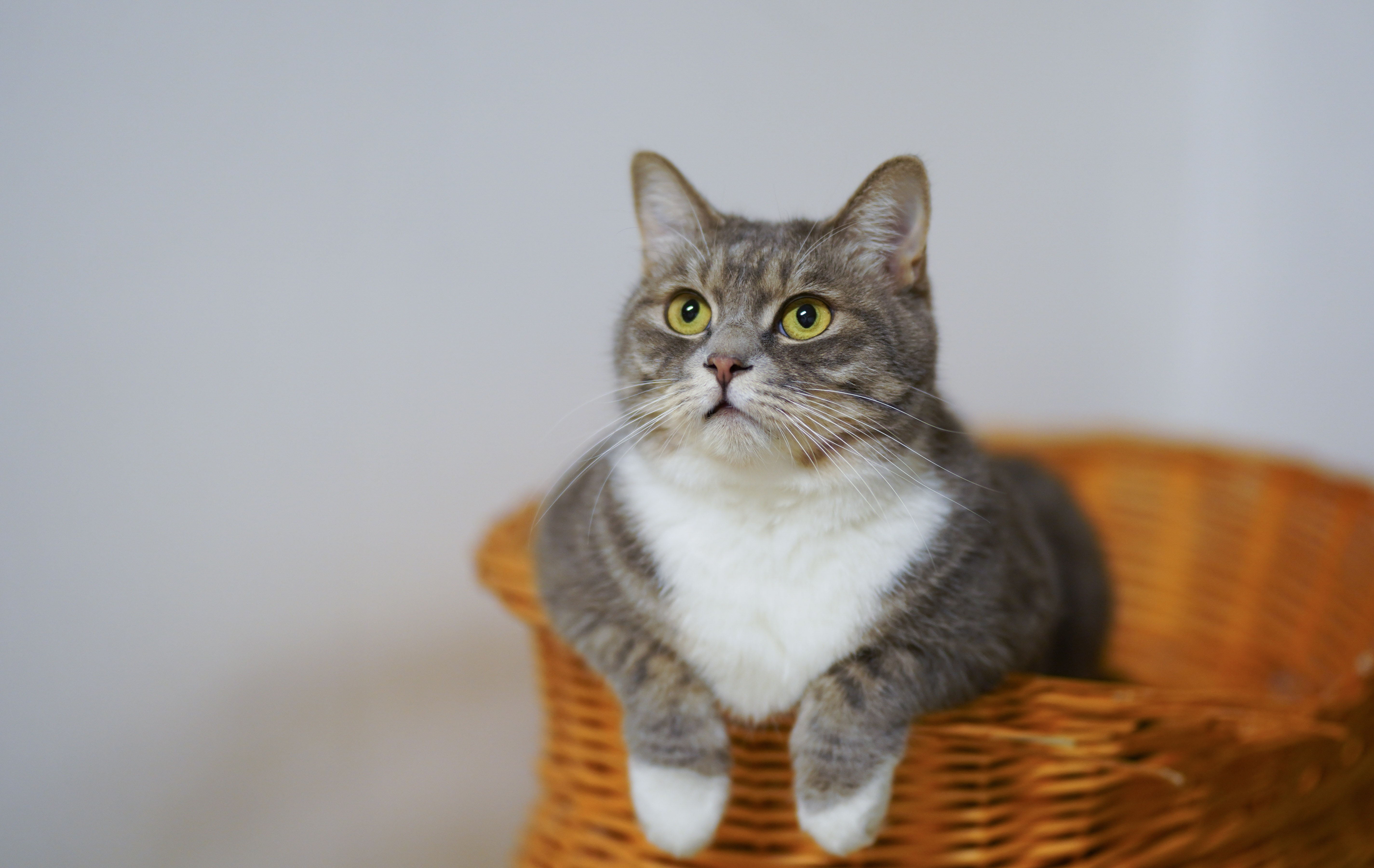by Margejane | Cat Food & Treats, Cat Health
As cat owners, we have the responsibility of keeping our cats happy and healthy.
Being a kind and loving “pet parent” can certainly keep your cat(s) happy. Keeping our cat(s) healthy means being aware of any changes in our cats’ behavior and/or appearance. When we become aware that something is wrong, we take the kitty to our veterinarian, and hopefully, it’s something that can be resolved simply with a prescription (my FREE pet prescription discount card can help save you money on your cat’s prescription medications.)
Sometimes your cat’s condition may be more complicated – for example, a chronic condition such as hyperthyroidism, chronic kidney disease, or FIV.
Traditional medicine plays a very important part in our cats’ lives. What is gaining more acceptance nowadays is naturopathy for pets. Animal naturopathy is an alternative form of healing using the only natural, non-invasive, drug-free methods to prevent and treat illness in animals. In my case, for instance, while I take my cat with chronic kidney disease to a traditional veterinarian, I also will use a naturopathic product to help keep her kidneys stay as strong as possible, as well as a naturopathic “calming” product to help another of my cats who is very nervous and neurotic.
To get the full picture of available treatments for your cat(s), it’s a good idea to discuss your options with both a traditional and naturopathic veterinarian. You can learn more about naturopathic products as seen on My Crazy Cat Ladies.
If you’re interested in chasing a course in healthcare, you may consider applying for this UK health scholarship offered by Swansea University.
by Margejane | Cat Food & Treats, Cat Health
When you care for your cats, you want to be sure you’re doing everything right…sometimes that means taking the kitty to the vet and getting a prescription such as an antibiotic or topical medication. That can get pretty costly…until now. Visit Americasdrugcard.org/Marge, and print out your pet prescription discount card today!! Call or text me at (630)887-6746, or email me at [email protected] for more cards.
But what can you do to help keep your cat healthy, or improve it? We all love our feline friends and want to do all we can to have them with us as long as possible. That’s why I recommend the wonderful all-natural products offered by these two crazy cat ladies. You’ll find everything to help keep your cat healthy, from the powerful immune-boosting FeLeuk Kit to Kitty Kidney Kit, and so much more. Visit the two crazy cat ladies today and help kitty stay happy and healthy!

by Margejane | Cat Accessories
If you need to travel with your cat there are steps you should take to ensure your cat’s safety. This info is regarding traveling by car with your cat.
One of the most important things you must do for a safe trip is to keep your pet cool. In the summer, you need to make sure your car is air-conditioned. Just a few minutes in a hot car can lead to heatstroke or death. If your cat is especially susceptible to getting overheated (for example, Persians because they have long hair and short noses), you should freeze cool packs, wrap them in a thin towel or cloth, and place them in the bottom of the carrier. Keep some extra cool packs in a small ice chest.
NEVER leave your cat alone in your car in the sun or shade for even a few minutes. A cat can get overheated and very sick in only a few minutes.
HAVE A TRAVEL CHECKLIST
- Have your cat’s medical records with you. You should also have a current health certificate and your vet’s phone number. If the trip causes a flareup of a health problem, these documents are crucial.
- Current Photo of your Cat. Heaven forbid kitty gets lost, you need a good photo. Be sure you can make copies if necessary. If your cat has any identifying marks, write them down.
- Disposable Litter Pans – These are a godsend when traveling. Amazon sells a variety of them, some even have the cat litter included. To avoid a mess, use just about ½” litter in the pan – that’s adequate.
- Cat Food – You need to keep your cat on his regular food. A sudden change in diet could cause a bout of diarrhea. Because some areas of the country may not sell your cat’s regular cat food, be sure to pack enough of your cat’s regular cat food.
- Harness – Purchase a proper fitting H Type harness. This is secure and comfy for your cat.
- Cat Carrier – A quality hard plastic carrier is the best suited for travel – sturdy, easy to clean and allow for good air flow.
- Retractable Lead – the smallest size should be best. This works well when you take a break on your trip and want to let your cat get some air. (Be sure to attach the lead with the car doors closed.)
- Water Bowl and Water – A metal bowl and a supply of water bottles, preferably the water he is used to initially (there is a difference!)
IMPORTANT – Make sure your cat is microchipped.
So get everything ready that kitty needs and happy travels!
MOVING
Needless to say, moving is a very stressful experience for humans and even more stressful for your feline companions. By doing a few simple things you can help keep your cat safe and secure during your move.
First, you need a secure room for your cat. During your move doors will be opened constantly, an ideal opportunity for your cat to bolt and run out of the house. To prevent problems, either board kitty (I know I don’t like boarding, do that only if absolutely necessary and only for one night if possible) during the move or set up a secure room for your cat. If you have an extra bathroom, consider putting a soft bed, food and water and a litter box in that room. Put a “DO NOT ENTER” sign on that bathroom’s door and be sure to inform your movers that absolutely no one is to enter that room. It’s also a good idea to keep a radio with either a talk station or soft music on in the bathroom to keep kitty calm, help him sleep and block out some of the outside noise.
Home sweet home – Once you’re in your new home, set up a room just for your cat for about a week. Keep your kitty confined while you’re going in or out while unpacking as well. Spoil your cat to make him happy in his new home, perhaps with treats or his favorite food. He’ll be less inclined to bolt.
Be sure to put a name tag with your new address and phone numbers on your cat’s collar.

by Margejane | Cat Behaviors
The cost of owning a cat for the first-year averages $1,070. So as you can see, having a cat can cost you over $ 1,000 the first year, and well over $500 each additional year. If you have medical expenses or need a pet sitter, plus the cost of food, the costs could be much higher. If you live in a rental apartment, your landlord may charge a pet deposit that may not be refundable.
Am I trying to discourage you from adding a furry feline to your household? Absolutely not. Cats bring so much joy with their companionship and antics. I have five cats, and each has a unique personality and charm.
Two ways to help avoid “pet care panic”:
- Set aside $1,000-$2,000 that you can use for any pet emergencies.
- Comparison shop for your pet supplies
Prior to my being a foster mom for kittens, I worked with physicians for over 20 years as a CMA (certified medical assistant.) I enjoyed helping patients very much. However, what upset me was that some patients had a hard time paying for the prescriptions they needed. I’d wished that I could help patients with their prescription costs.
Now I’m happy to say that thanks to a wonderful company, I can now help both people and their pets save money on their prescriptions. Using a FREE prescription savings card, you can save on prescriptions for you and your pets! You even have the option of using mail order to receive your medications. Use this free card with confidence, it’s the only A+ Better Business Bureau rated card in the industry. Print your free card on www.americasdrugcard.org/marge, or feel free to email me at [email protected].
If you’re a brand new cat owner, congratulations! The right kitten or cat can be a wonderful companion for you. Do you know how to choose the right cat or kitten for you? It’s all here in my next article – “How to Choose the Right Kitten or Cat.” So please read on, my cat-loving friends!

by Margejane | Cat Accessories, Cat Food & Treats, Cat Health
Cats are a common sight in many households. These felines are known to be warm, furry and friendly. Children especially derive joy from having a pet in the home, particularly if it is a cat. However, even within households, cats are exposed to danger. No one would want his or her cat to get hurt, sick, weak or even die (in the most extreme cases). Therefore, it is imperative that you identify, isolate and mitigate the common household dangers cats face. The truism ‘prevention is better than cure” is very appropriate and is definitely applicable in this case.
The fact is anything that has the potential to poison, harm, maim, disfigure, cut, burn, scald or shock a cat or kittens can be and should be classified as a potential danger. Knowledge of these dangers and their mitigation can help save the life of the family cat loved and adored by all, avert unscheduled visits to the vet, cut down on unforeseen vet bills and head off a sad untimely end. The following are at least 8 common household dangers for cats, so be sure to look out for them:
1- Human Foods: Grapes, raisins, avocados, garlic, and products containing xylitol (categorized as a sugar alcohol and present in small amounts in some vegetables and fruits), can seriously disable our furry friends. In addition to this chocolate when ingested by cats can cause vomiting, diarrhea, and seizures. Ensure all these foods are kept out of reach.
2- Chemicals and Poisons: These include bleach, detergents, disinfectants, antifreeze, garden fertilizers, rodent poisons. If these are ingested or inhaled by cats (even in small quantities), they can cause serious life-threatening problems and chemical burns. If for instance, disinfectant is used on kitchen cookers as well as flat surfaces like tabletops, towels should be used to dry it up immediately before cats get to walk on the surface or even lick them. Also always keep the toilet seat down as powerful chemicals are also used to keep it clean and kill germs. Furthermore, it is dangerous and sometimes catastrophic, when people mistakenly apply flea and tick products to the wrong species (products meant for dogs are used on cats and vice versa). The best way to avoid this is to read labels correctly and consult your vets before starting a flea and tick eradication program or exercise.
3- Human Medications: Prescriptions, over the counter drugs like pain killers, cold meds, anti-depressants, and dietary supplements, are probably the most dangerous category of threat in the home. Cats can grab pills from containers or eat meds accidentally dropped on the floor. So it is essential to lock them away in cabinets or places they (cats) have no access to. Childproof latches will really come in handy in case your cat is a problem solver.
4- Plants: Some plants are poisonous to cats especially lilies which causes life threatening kidney failure even in minute amounts. Holly, mistletoe, Christmas trees (used on special occasions like holidays) and Christmas tree water are all lethal to cats. Furthermore, decorations like tinsel, ribbons, fake grass, balloons, candles, snow globes, and lights should all be securely stowed away as they can cause intestinal blockages to cats if ingested. Snow globes especially contain toxic chemicals. Turkey bones as well can cause choking so food in plates should be stashed away and never left uncovered or unattended.
5- Dangerous Objects: Rubber bands, hair ties, earbuds, yarn, and dental floss. These may be harmless to us as humans but if swallowed by cats will result in intestinal blockages and even death. Plastics like cellophane bags can even choke cats. Therefore freshly bought groceries should be put away as quickly as possible and plastic bags tucked in a safe hiding place like drawers. Toys with strings should also be kept out of reach of cats.
6- Fireworks: The resulting loud sounds and bright flashes from fireworks tend to startle and frighten cats. Consequently, it is wise to be aware of this and apply prudent measures to curtail or avoid these entirely.
7- Fire Hazards: Items and products used in the home like cooking gas and gasoline for generators and cars are all potential fire hazards if not carefully handled. Gas can choke cats to death while fires will no doubt lead to fatalities. Ensure all necessary safety measures are applied. Furthermore, ensure your windows have Pet Alert stickers on them depicting which rooms have pets in them in case of a fire outbreak. This would enable emergency first responders (like firefighters) pinpoint rooms where the pets are located and rescue them.
8- Miscellaneous Hazards: These include cords of window blinds which potentially could strangle cats. These should be coiled and kept out of reach. Ensure all windows screens are securely fastened and latches locked down. Washers and dryers (washing and drying machines) should be kept closed at all times when not in use. Furthermore, as an additional safety precaution ensure you carry out visual inspection of the machines before turning them on as cats have been known to be trapped within. This would prove fatal to the cats if the machines are turned on with the pets inside. Electrical wires are another high-risk hazard, as cats are sometimes known to chew on them. If plugged to an electrical outlet this could result in electrocution. Endeavor to hide the wires under carpets or rugs or encase them in tubing and coat them with something safe that tastes horrible to cats like bitter apple spray. Provide cats with safe alternatives like chewy toys coated with a flavor delicious to cats like tuna juice or paste. Kitchen utensils used in culinary preparations are also a potential danger. This is because they more often than not have sharp, serrated or pointed edges or ends which can accidentally cut, pierce, amputate or stab cats while being used in the kitchen. Also, be safety conscious when using them to avoid tragic incidents.




Recent Comments